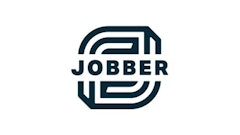
From enterprise-level lawn and landscape service providers to national landscaping equipment manufacturers and distributors, every green industry business today needs security measures in place to protect company information systems and customer data against hacks and data breaches. Significant financial, reputational, and informational losses can result from the release or theft of sensitive data such as performance numbers, store, customer and employee details, research on market competition or other critical business information.
And although larger landscaping and manufacturing operations are usually the primary targets, it would be a mistake for small-to mid-size business owners to assume the size of their business is too small to interest cybercriminals. Small-to-midsize businesses bear the brunt of more than half of cyberattacks, according to researcher Cybersecurity Ventures. Data breaches can sever customer relationships, ruin brands and sink companies. In fact, 60% of small-to-midsize companies that incur an attack close their doors within six months, Cybersecurity Ventures found.
Regardless of size, organizations should incorporate security in their growth planning and make sure their technology and cybersecurity investments keep pace as they expand operations and increase the number and variety of mobile devices accessing their systems. Service businesses may be at heightened risk due to their heavy reliance on field service crews, but devices used primarily at a headquarters, factory or distribution center pose similar risks.
Why? Because mobile technology enables a distributed workforce with the digital tools that were once confined to a desktop in an office. As a result, employers should prevent access to company data and systems when not relevant to the job at hand. Otherwise, a tablet or smartphone left behind at a job, or stolen from an unattended vehicle or from an office, may give a criminal access to sensitive data, such as customer account and payment information that can be used for identity theft. This could apply to a landscape architect who splits their day evenly between corporate headquarters and a jobsite, to field service crews whose entire workday is spent traveling from job-to-job. Different tasks and different work environments require different permissions.
The good news is that the solutions many green industry employers leverage to manage mobile device usage can also enhance the measures they rely upon for digital security. A contextual mobility management (CMM) solution can dynamically adjust access to work apps and data on any mobile device based on the job, the situation, and even the location.. And let’s be honest, mobile devices that are password protected will never be truly “hack-proof,” but without access to sensitive data in the first place the device poses no risk even if it is lost or stolen. This is where contextual management can intervene to temporarily remove access to company systems from workers' devices when not on company premises, leaving them with only the resources required to complete the job and nothing else.
Context is Key
Many enterprises are now augmenting conventional security measures with adaptive device management tools. Green industry businesses may already be using contextual mobility management technology to regulate the use of smartphones and other mobile devices on the job, or while driving between jobs. The key to this approach is recognizing context – where a device is, who is using it, how it's being used and what's happening around the user at the time.
Contextual mobility management gives the employers the means to create an additional layer of security to protect their data. But before exploring its security uses, it helps to understand how CMM enhances mobility.
Contextual mobility management works with EMM or FSM platforms to automatically trigger safety protocols, such as allowing or prohibiting access to apps depending on what’s happening around the worker. As a worker’s environment changes through the course of their day and activities, so do their device permissions – automatically and in real time. And CMM responses are immediate, occurring as soon as the context changes.
CMM provides the added benefit of safeguarding a company from hacks and data breaches resulting from lost or stolen mobile devices. When a device leaves the workplace, such as when the workday ends, a worker runs an impromptu errand – or their device is stolen – the change in context prohibits access to sensitive data. There is no need for IT to intervene, no delay until a theft is discovered and reported.
Contextual mobility management doesn't replace a dedicated security solution, but it enhances security measures in the same way it enhances an EMM or FSM solution. By turning off a worker’s mobile device access to sensitive data the minute they leave a contextual zone such as an office or manufacturing site, or if the device is lost or stolen from a landscaping worksite, there is no need to worry about data being compromised as well. Lawn and landscape service providers and equipment manufactures that provide their workers with access to only what they need to get the job done and nothing they don't are taking data protection to the next level. This is a game changer as cybercrime continues to evolve.





























